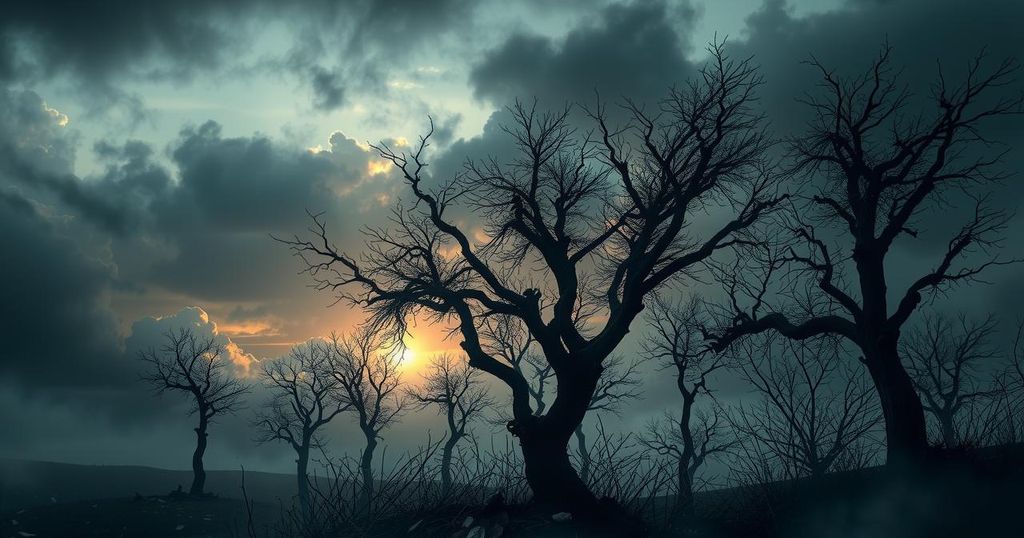Escalating Conflict in the DRC: The M23 Insurgency and Global Implications

The DRC is experiencing an escalating conflict fueled by the M23 rebel group, which is attempting to expand its territory amidst severe humanitarian crises. The violence has displaced thousands and sparked international concern regarding the region’s stability and global mineral supply chains, particularly cobalt. Both the DRC government and Rwanda’s involvement are pivotal in understanding the conflict’s background and implications for international relations.
The Democratic Republic of Congo (DRC) is facing a severe insurgency led by the M23 rebel group, which is aiming to extend its territory southward from Goma, a significant city in the country’s eastern region. This conflict is a resurgence of decades-old tensions linked to valuable mineral resources that underpin global industries, raising concerns about the potential for a broader war. With international worry mounting, the DRC government has mobilized forces under President Félix Tshisekedi’s call to reclaim lost territory amid rising violence and displacement.
The DRC has a long history of conflict post-independence from Belgium in 1960. The current skirmishes have escalated over three years as M23, reportedly supported by Rwanda, has gained ground, displacing over 400,000 people in the last month alone. In Goma, the situation is dire, with many casualties and vital services disrupted, manifesting the grave realities of warfare that echo the tragic past.
International reactions to the ongoing violence illustrate the global implications of the DRC’s instability. Despite the involvement of foreign mercenaries and diplomatic engagement efforts, the response from Western nations has been criticized as insufficient. Experts warn that this indifference may enable Russia and China to increase their influence in the region, posing a threat to Western interests.
The M23 group is primarily composed of ethnic Tutsi and was formed in the context of tensions between Tutsi Rwanda and the largely Hutu DRC. The insurrection has its roots in historical violence, including the Rwandan genocide. Peace agreements have had limited success, as military aid from Rwanda to the M23 insurgents complicates the conflict further.
The economic landscape in the DRC, rich in minerals like cobalt, plays a critical role in this conflict, given its significance for global technology supply chains. China, involved in the DRC’s mining sector, has voiced concerns about the insurgent activities threatening international mineral supplies, stressing the need for stability in the region.
Rwanda’s role in the resurgence of the M23 has drawn scrutiny from international observers, who note a contrast between previous aid cuts and the current flow of assistance that continues despite ongoing conflicts. The M23’s military advances juxtaposed with Rwanda’s influence suggest a complicated geopolitical environment where Western aid remains intertwined with commercial interests, complicating international humanitarian stances.
The conflict in the Democratic Republic of Congo is deeply rooted in its colonial history and the subsequent political turmoil following independence. The resurgence of violence, particularly involving the M23 rebel group, poses significant risks not just for the nation but for regional stability and international interests. The DRC’s vast mineral wealth has historically attracted external powers, making the ongoing insurgency a matter of global concern given the potential repercussions for industries reliant on these resources.
The ongoing conflict in the DRC, propelled by the M23 insurgency, underscores the complexity of the region’s history and the interplay of local and international forces. The humanitarian crisis resulting from the violence raises urgent calls for intervention and support from the global community. Understanding the intricacies of these dynamics, including Rwanda’s role and the strategic implications for resource control, is essential for addressing the conflict and its far-reaching consequences.
Original Source: www.nbcnews.com







